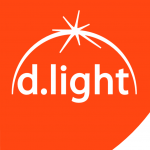Economy
Only 30% of Insurance Firms in Nigeria are Valued Above N5b

By The Nation
More than two-thirds of insurance companies are valued below the minimum capital requirement to operate in the lowest rung of the proposed new insurance capital base, making most insurers susceptible to aggressive mergers and acquisitions.
Current valuation of insurance companies obtained at the weekend by The Nation showed that some 70 percent of insurance companies are valued below the N5 billion required to operate as a composite tier- 3 insurance company under the planned minimum capital requirements. Only 15 percent of insurers meet the N15 billion requirement while 15 percent meet the N5 billion for the second-tier composite operator.
There are 27 insurance companies quoted on the Nigerian Stock Exchange (NSE).
While regulators use the book value or shareholders’ fund as a measure of regulatory compliance, investment experts agreed that market value is a major component in any corporate valuation. Market value is usually ahead of book value because of the wealth creation potential and future value accretion of the book value. A reversal poses challenges in the event of capital raising and mergers and acquisition, according to investment pundits.
Chief Operating Officer, GTI Capital, Mr Kehinde Hassan, said market valuation is one of the criteria for valuation of a company for any purpose of new share issuance or mergers and acquisitions.
According to him, corporate finance experts use market value, net asset value or book value, peer group analysis and scenario analysis to reasonably ascertain possible valuation for a company. The financial ratios tend to revolve around a range and any value significantly outside the range is usually treated as an outlier and removed in the calculation of the pricing average.
Mr Hassan said low market valuation might have strong influence on the overall valuation of a company as strategic investors may only at best offer slight premium on market value of a company. In a hard-pressed situation, large investors may demand for market-based value or offer price around the pricing range.
Managing Director, Sofunix Investment and Communications Limited, Mr Sola Oni, said low valuation is a possible trigger for aggressive mergers and acquisitions as low-capitalised companies may find it difficult to raise required capital in the event of massive capital raising exercise by many companies.
According to him, market valuation, though not absolutely the exact determination of the value of a company in all cases, is a major indicator of the health of a company and over a period of time, the true reflection of its worth.
“If a company is struggling to meet shareholders’ expectation, such a company is a target for acquisition. Strategic investors usually look for low valuations and synergies and for a company under pressure of minimum capital requirement, the market valuation may play a big role in the negotiation,” Mr Oni said.
He noted that one of the immediate expectations from the implementation of the new tier-based capital by the National Insurance Commission (NAICOM) is mergers and acquisitions, which may lead to historic consolidation of the insurance sector.
Citing the example of the Nigerian banking industry, Mr Oni said consolidation, though somewhat a bitter pill may be the much-needed tonic to boost investors and customers’ confidence in the sector, adding that capitalisation is a major requirement for global competitiveness.
“Investors’ confidence in the insurance sector is low, so there is the need for a turnaround of the sector. Consolidation may lead to such turnaround. However, the current low valuations also present good opportunities for discerning investors who can see into the future, who know that Nigeria as a growing country cannot exist without a viable insurance sector, to take positions ahead of the repositioning of the sector,” Mr Oni said.
Most of the insurance companies are trading below their 50 kobo nominal value. Investment experts agreed that boards of insurance companies may find it difficult a decision to offer shares below nominal value.
Under the new NAICOM’s tier-based minimum solvency capital policy, insurers will be classified into three tiers according to the minimum capital base and risk-bearing capacity. Tier 1 insurance companies are required to have minimum capital base of N9 billion for general insurance and N6 billion for life insurance, implying a composite capital base of N15 billion. Tier 2 companies are divided into two categories, with N4.5 billion minimum capital base for general insurance and N3 billion for life assurance. Thus a composite insurance-general and life insurance, will be required to have minimum capital base of N7.5 billion. Tier 3 companies will continue to operate on the existing minimum capital base of N3 billion for general insurance and N2 billion for life insurance, implying a composite capital base of N5 billion for a composite tier 3 insurance company.
Under the risk-based capitalisation approach, tier 1 companies will be able to undertake all risks including annuity and high-level special risks such as energy and aviation risks. Tier 2 companies will undertake retail insurance as prescribed under Tier 1, including commercial and industrial risks and group life assurance while tier 3 companies will only be able to write retail insurance only including micro insurance, motor, fire, agriculture, compulsory liability insurances, individual life, health and miscellaneous insurance.
The Nation recently reported exclusively that insurance companies have launched plans for emergency fund raising at the capital market as consolidation looms in Nigeria’s most populous quoted industry.
Economy
NGX Index Shatters 190,000-point Barrier as Market Cap Hits N122trn

By Dipo Olowookere
The Nigerian Exchange (NGX) Limited recorded its highest single day growth in 2026 after it chalking up 4.36 per cent on Monday, helping the two market indices hit their all-time highs.
According to data from Customs Street, the All-Share Index (ASI) soared during the session by 7,949.36 points to 190,262.44 points from last Friday’s 182,313.08 points, and the market capitalisation surged by N5.103 trillion to N122.130 trillion from the preceding session’s N117.027 trillion.
A look at the sectorial performance showed that the industrial goods counter expanded by 7.77 per cent, the energy space rose by 4.73 per cent, the banking sector grew by 4.71 per cent, the insurance industry improved by 2.45 per cent, and the consumer goods segment jumped 1.44 per cent.
Business Post reports that investor sentiment remained bullish, as the bourse finished with 57 appreciating stocks and 27 depreciating stocks, implying a positive market breadth index.
Jaiz Bank, Beta Glass, Ikeja Hotel, Zichis and Aradel Holdings all chalked up 10.00 per cent each to sell for N9.13, N453.20, N41.80, N11.88, and N1,096.70, respectively.
However, RT Briscoe lost 9.99 per cent to trade at N15.68, Deap Capital decreased by 9.91 per cent to N7.64, Caverton crashed by 962 per cent to N7.05, Guinea Insurance shrank by 9.27 per cent to N1.37, and Tantalizers dropped 8.11 per cent to quote at N5.10.
Yesterday, market participants bought and sold 1.1 billion shares valued at N64.0 billion in 64,821 deals compared with the 936.4 million shares valued at N52.7 billion transacted in 50,068 deals last Friday, indicating an uptick in the trading volume, value, and number of deals by 17.47 per cent, 21.44 per cent, and 29.47 per cent apiece.
Access Holdings remained very active at the market, further closing as the busiest on Monday with 86.7 million units worth N2.3 billion, Oando sold 73.5 million units for N3.2 billion, Zenith Bank exchanged 69.3 million units valued at N5.9 billion, Mutual Benefits transacted 67.1 million units for N289.1 million, and Japaul traded 49.2 million units worth N135.6 million.
Economy
Oil Prices Rise 1% Ahead US, Iran Nuclear Talks

By Adedapo Adesanya
Oil prices moved up on Monday as investors weighed the implications of the forthcoming US-Iran talks aimed at de-escalating tensions against a backdrop of expected supply increases by the Organisation of the Petroleum Exporting Countries and allies (OPEC+).
Brent crude futures appreciated by 90 cents or 1.33 per cent to trade at $68.65 a barrel, while the US West Texas Intermediate (WTI) crude futures gained 86 cents or 1.37 per cent to close at $63.75 a barrel.
Fears of supply disruption from the US-Iran tensions have helped keep oil prices stable. The two countries are due to hold a second round of talks in Geneva, Switzerland, on Tuesday over Iran’s nuclear programme.
Iran has repeatedly threatened to close the Strait of Hormuz in retaliation against any attack, which would choke a fifth of global oil flows and send crude prices sharply higher.
Comments from US President Donald Trump that it could make a deal with Iran over the next month with US Secretary of State Marco Rubio emphasizing that the Trump administration prefers diplomacy with Iran, though military options remain implicitly on the table.
Iran signaled willingness to dilute 60 per cent enriched uranium but insists sanctions relief must be part of any agreement.
This comes ahead of new US-Iran talks in Geneva on February 17. The US delegation will include envoys Mr Steve Witkoff and Mr Jared Kushner, with representatives from Oman acting as mediators. Oman hosted indirect talks between Iran and the US earlier in February.
Ahead of the meeting, Iran’s foreign minister met with Mr Rafael Grossi, the head of the International Atomic Energy Agency (IAEA), the UN nuclear watchdog, on Monday.
Market analysts have warned that increased Iranian tension could drive Brent to $80 a barrel, while fading tension would drop it back to $60 a barrel.
OPEC+ is dampening oil prices as it appears the alliance is leaning toward a decision at their March 1 meeting to resume output increases from April after a three-month halt.
Oil prices also were supported by China’s continued strong crude imports and by some disruptions in oil exports.
China’s imports of Russian oil are set to climb for a third straight month in February, hitting a new record, after India slashed purchases following US pressure.
Economy
NCSP, NACCIMA Move to Unlock SME-led Industrial Growth

By Adedapo Adesanya
The Nigeria–China Strategic Partnership (NCSP) has reaffirmed its commitment to consolidate engagements with the Organised Private Sector while strengthening strategic collaboration to accelerate Nigeria’s industrial expansion, following a high-level meeting with the leadership of the Nigerian Association of Chambers of Commerce, Industry, Mines and Agriculture (NACCIMA).
The dialogue focused on aligning institutional efforts to deepen Nigeria–China economic cooperation and position Small and Medium Enterprises (SMEs) as primary beneficiaries of trade, manufacturing, and investment initiatives.
The Director-General of NCSP, Mr Joseph Tegbe, stated that the Partnership was established as a structured coordination platform to drive Nigeria’s strategic economic engagement with China in a disciplined and result-oriented manner.
He outlined its core mandates, including oversight of FOCAC-related initiatives, advancement of priority economic initiatives, and the facilitation of catalytic industrial projects across priority sectors.
Mr Tegbe emphasised that the next phase of engagement will prioritize harmonization of ongoing initiatives, stronger inter-agency coordination, and clearer execution frameworks to ensure Nigerian businesses, particularly SMEs, benefit more directly and sustainably from bilateral trade and investment initiatives.
According to a statement, NSCP said the meeting reviewed existing collaborations and investment pipelines, with both parties agreeing on the need to streamline coordination across federal and subnational levels to improve policy coherence, enhance implementation efficiency and eliminate fragmentation to take advantage of scale.
Mr Tegbe further highlighted the strategic importance of leveraging landmark trade instruments like China’s Zero-Tariff Agreement with African countries as a pathway to scale-up domestic manufacturing, deepen value addition, and strengthen Nigeria’s export competitiveness.
On his part, the President of NACCIMA and Chairman of the Organised Private Sector of Nigeria (OPSN), Mr Jani Ibrahim, commended NCSP’s structured engagement model and its deliberate focus on SMEs as drivers of inclusive industrial growth.
He reaffirmed the readiness of the organised private sector to collaborate closely with NCSP in mobilising enterprises, providing structured policy feedback, and ensuring measurable enterprise-level outcomes from Nigeria–China economic engagements.
Both sides identified practical pathways to integrate SMEs into manufacturing value chains linked to Chinese partnerships; expand agro-processing and value-added production; strengthen technical and vocational education collaborations to close industrial skills gaps; and promote the development of geo-cluster industrial parks capable of anchoring regional manufacturing ecosystems.
They agreed to establish a formal working interface to translate strategic alignment into measurable results, with defined focus areas including investment facilitation, SME capacity development, industrial cluster formation, and export-oriented growth.
The meeting underscores NCSP’s resolve to convert diplomatic goodwill into tangible economic gains, expand opportunities for Nigerian businesses and strengthen productive capacity, leveraging NACCIMA’s network, the statement added, saying this aligns with President Bola Tinubu’s Renewed Hope Agenda, which seeks to achieve sustained and inclusive growth anchored on industrial productivity and private-sector dynamism.
-

 Feature/OPED6 years ago
Feature/OPED6 years agoDavos was Different this year
-
Travel/Tourism10 years ago
Lagos Seals Western Lodge Hotel In Ikorodu
-

 Showbiz3 years ago
Showbiz3 years agoEstranged Lover Releases Videos of Empress Njamah Bathing
-

 Banking8 years ago
Banking8 years agoSort Codes of GTBank Branches in Nigeria
-

 Economy3 years ago
Economy3 years agoSubsidy Removal: CNG at N130 Per Litre Cheaper Than Petrol—IPMAN
-

 Banking3 years ago
Banking3 years agoSort Codes of UBA Branches in Nigeria
-

 Banking3 years ago
Banking3 years agoFirst Bank Announces Planned Downtime
-

 Sports3 years ago
Sports3 years agoHighest Paid Nigerian Footballer – How Much Do Nigerian Footballers Earn












